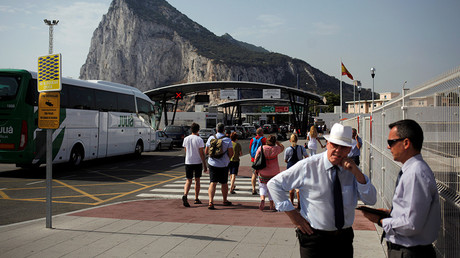With almost all of the votes counted in Sunday’s General Election, Spain’s conservative People’s Party (PP) of acting Prime Minister Mariano Rajoy has won over 30 percent of the seats, with up to 133 PP politicians to be represented in the parliament.
The victory has cemented the acting prime minister’s right to continue governing Spaniards, Mariano Rajoy said, praising the success of his PP party.
“We won the election, and we demand the right to govern,” he said during a victory speech in Madrid. On Twitter, Rajoy thanked all PP members, saying “the victory is yours and of those Spaniards that believed in this project.”
The Unidos Podemos party showed disappointment with its third place in the election results, saying it expected to perform better.
“These are not good results, they are not what we expected,” Podemos political press secretary Inigo Errejon said.
“They are not good for Unidos Podemos and we don’t think they’re good for Spain because they reverse the move for political change.”
The leader of Spain’s Ciudadanos party said he is ready to initiate talks with the PP party and discuss the question of forming a coalition government.
The collaboration between the PP and Ciudadanos party, which garnered 32 seats, would still be seven seats short of securing a majority. However, the coalition could potentially gain another six seats from regional parties.
According to exit polls, the Unidos Podemos (United We Can) alliance led by the leftist Podemos party would have from 91 to 95 seats in the 350-strong assembly, Reuters reported, citing the poll by state broadcaster RTVE. The Socialists could get 81-85 seats, while Spain’s liberal Ciudadanos (Citizens) party might have up to 30 seats.
The preliminary numbers mean the PP party didn’t get enough seats to form a government on its own, not reaching the required majority of 176 lawmakers.
Over 36 million Spaniards are eligible to vote Sunday, with four big parties and six smaller regional ones expected to win seats in the parliament. Turnout was 51.17 percent at 16:00 GMT, according to official data. Voting closed at 18:00 GMT.
The election comes after political parties that won seats in parliament last December failed to form a government, throwing the country into political limbo.
Opinion polls, conducted before the Brexit referendum, suggest that this time around the parliament will be as fragmented as the previous one, with the conservative Popular Party (PP) coming first without a majority, followed by Podemos. The upstart leftist party, similar to Greece’s ruling Syriza party, rejects EU-backed austerity measures and is likely to replace the 137-year-old Socialist party as the main left-wing force.
“A sad day for Europe. We should change our path. Nobody would like to move away from an honest and united Europe. We should change Europe,” Pablo Iglesias tweeted, reacting to the referendum results in Britain.
The conservatives however have warned the public against voting for “populists.”
“Populism may end up having very negative consequences for people, vote for PP,” said Prime Minister Mariano Rajoy.
With the world still feeling the aftershocks of the UK referendum to leave the EU, questions remain about how it will affect the results of the Spanish vote.
“With this economic crisis and stock markers now plummeting, of course, Brexit is going to have an impact on the elections in Spain,” a woman in the streets of the Spanish capital told RT.
“Brexit might boost the number of people voting for populist parties like Podemos, as well as the number of those wanting Spain to stay within the Union,” one resident of Madrid told RT.
Like most of other respondents, he was confident that Spain would never follow Britain’s example.
“Spain doesn’t have the sort of economic independence the UK has, and I think this country needs the EU more than Britain,” he added.
“I think Brexit can contribute to the agenda of some Spanish parties. However, due to Brexit they could lose a number of voters, who wouldn’t like to see the same thing happen here in Spain. I don’t think Spain will leave the EU. Anti-EU sentiment is a rare thing here in Spain,” another man added.
Analysts are not expecting a high turnout, due to Spaniards’ disillusionment with politicians who were unable to come to terms with each for months.
Source Article from https://www.rt.com/news/348495-spain-elections-podemos-brexit/?utm_source=rss&utm_medium=rss&utm_campaign=RSS
Related posts:
Views: 0
 RSS Feed
RSS Feed

















 June 26th, 2016
June 26th, 2016  Awake Goy
Awake Goy 
 Posted in
Posted in  Tags:
Tags: 
















